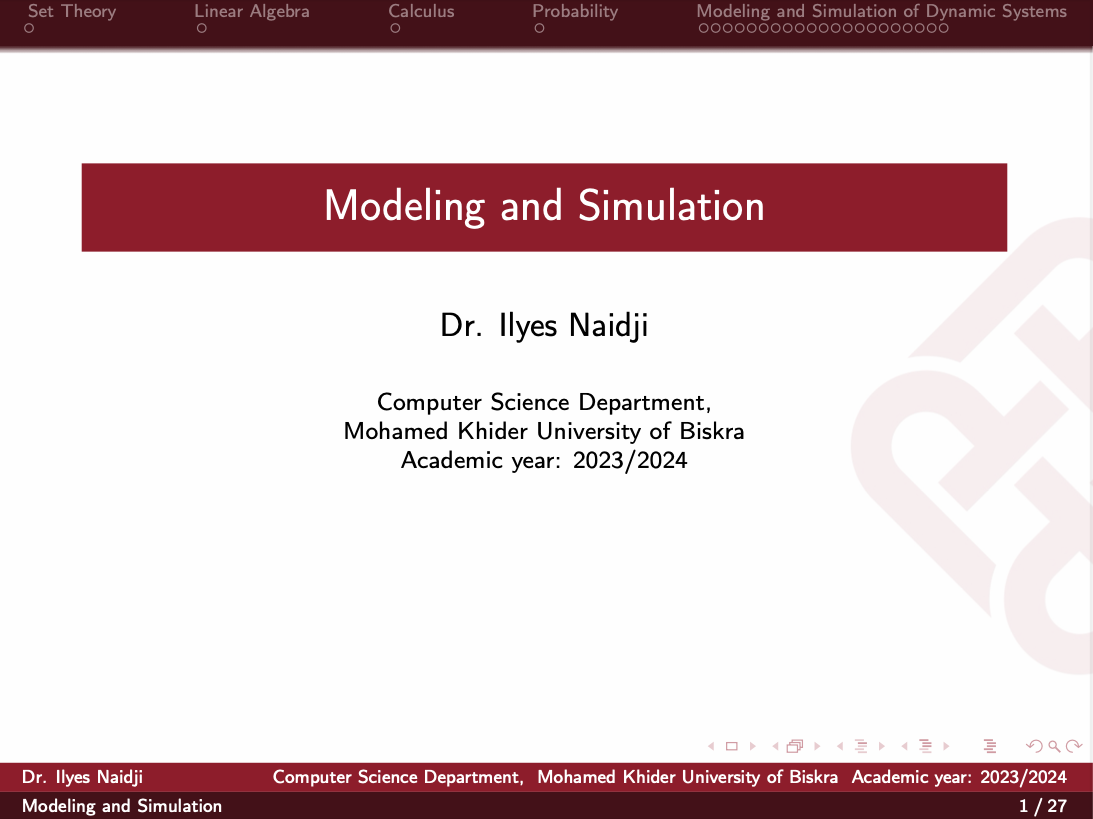Modeling and Simulation
Options d'inscription

This course is intended for computer science master students and typically covers the principles, techniques, and applications of creating mathematical models to represent complex systems and simulating their behavior. The course usually encompasses both theoretical concepts and practical implementation using computer software.
Here's a brief overview of what such a course might entail:
-
Introduction to Modeling and Simulation: The course begins with an overview of the fundamental concepts of modeling and simulation, including the importance of abstraction, types of models (e.g., deterministic, stochastic), and the simulation lifecycle.
-
Mathematical Modeling Techniques: Students learn various mathematical techniques used for modeling different types of systems, such as differential equations, discrete-event simulation, agent-based modeling, and state-based models.
-
Modeling Complex Systems: This part of the course focuses on modeling complex systems found in various domains such as computer networks, transportation systems, biological systems, and social systems. Emphasis is placed on understanding system dynamics and identifying key variables for modeling.
- Simulation Software Tools: Hands-on experience with popular simulation software tools like MATLAB and Simulink. Students learn how to use these tools to develop, analyze, and validate models.
- Enseignant: Ilyes Naidji
